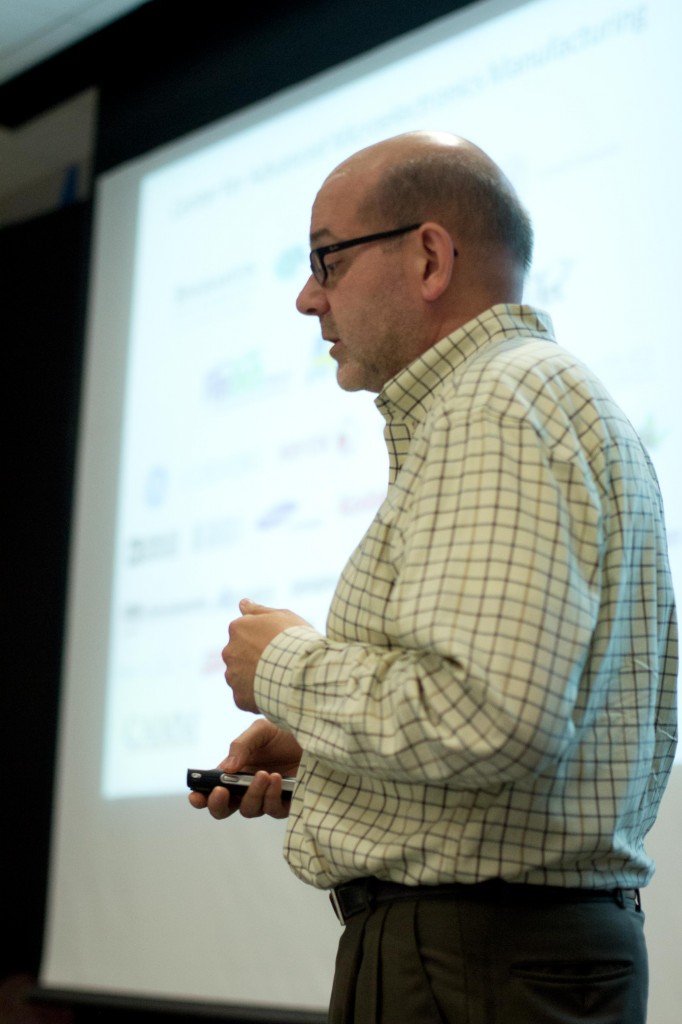
The Graduate Chemistry Club and the Materials Research Society teamed up on Friday to host an educational seminar on material science.
The two groups hosted a “Science Café” for both graduate and undergraduate students that featured Mark Poliks, a chemistry professor and technical director of the Center for Advanced Microelectronics Manufacturing.
Poliks discussed the advances from silicon wafers to flexible plastics and the applications and material composition of flexible electronics.
Megan Fegley, president of the Graduate Chemistry Club and a graduate student studying chemistry, said she believed the café was a success.
“The event was well attended and the audience was very engaged,” Fegley said. “Professor Poliks’ presentation gave the audience a chance to learn about the evolving world of electronics and how flexible, smarter materials such as glass and plastics can be incorporated into a variety of electronic devices.”
The Café was held to coincide with the re-airing of the four-part special “Making Stuff” on the PBS series “Nova.” Each episode in the series was about the science of materials, focusing on making things smarter, cleaner, stronger and smaller.
“It’s about the progression of technology,” Fegley said. “As you can see with all technology, things have become smaller and smarter, all because of the materials they’re made out of and the science behind those materials.”
According to Melody Tianchan Jiang, president of the Binghamton University student chapter of the Materials Research Society, material science is the study of all kinds of materials and their applications.
“These materials are used to create anything from nanotechnology to medical technology,” Jiang said.
Fegley said the goal of the café was to promote material science to the general public and display how it is applicable to everyday life.
“Materials are in everyday life and they are really of interest to everyone,” Fegley said. “We can take complex topics and bring them to the general public to help educate them about the materials they use everyday and the science behind those materials.”


